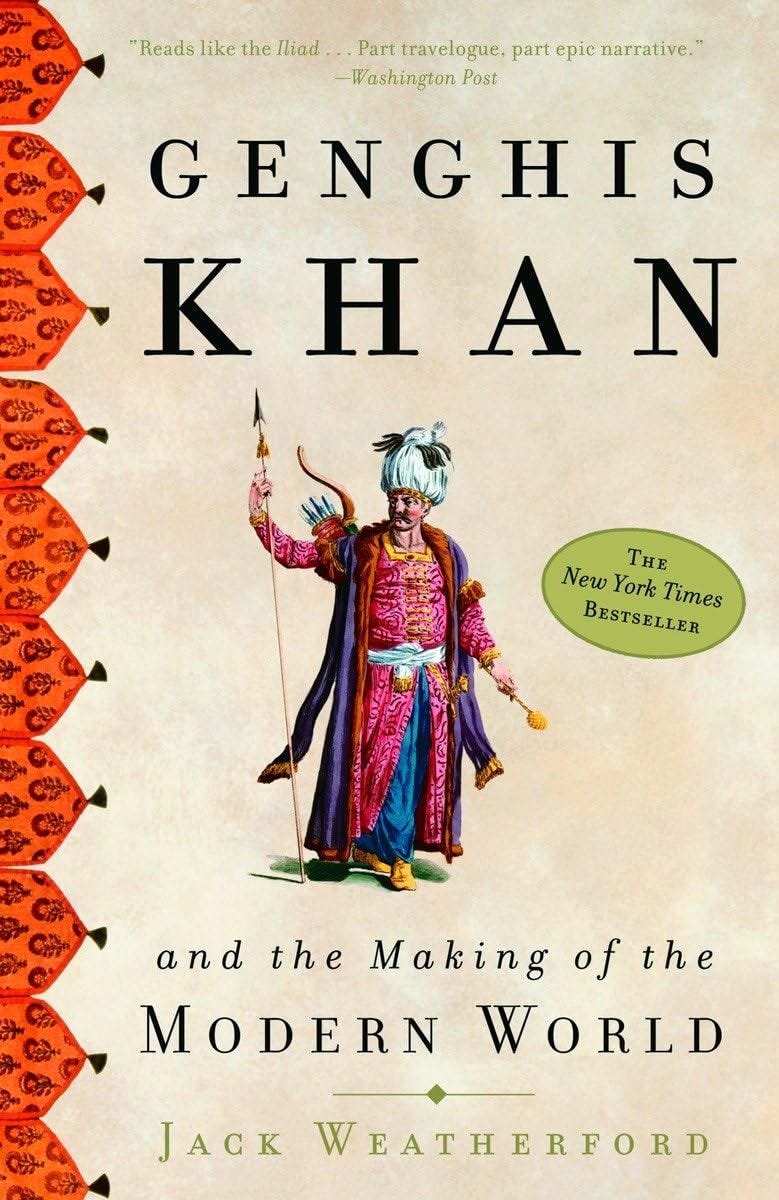Jack Weatherford's Genghis Khan and the Making of the Modern World shatters the Western stereotype of Genghis Khan as merely a brutal barbarian, revealing instead a visionary leader whose innovations shaped our modern world. The narrative begins with a powerful scene that sets the tone for the entire book: young Temujin (later Genghis Khan) and his abandoned family surviving on rats and roots after his father's murder by rival clansmen.
This early hardship proved transformative, shaping Temujin's revolutionary approach to leadership and loyalty. Unlike contemporary rulers who relied on aristocratic birthright, he built a merit-based system of advancement that was centuries ahead of its time.
The book offers a compelling example of his leadership philosophy through the "arrow breaking" demonstration: when he gathered his sons, each could easily break a single arrow, but none could break a bundle - a powerful lesson about unity that became the foundation of his empire-building strategy.
Weatherford masterfully details the surprising innovations that the Mongols spread across Eurasia. They created the world's first international postal system (the Yam), with relay stations every 20-30 miles across their vast territory - a network later used by Marco Polo in his famous travels. The Mongols pioneered paper currency, revolutionized military tactics with light cavalry and sophisticated siege weapons, and established an international law system protecting religious freedom and diplomatic immunity.
The book's most fascinating aspect is its exploration of the Mongols' role in creating the first truly global civilization. They standardized weights, measurements, and currencies across their territory, establishing the world's first free-trade zone stretching from Korea to Eastern Europe. Their empire became a conductor for cross-cultural exchange, transferring technologies between civilizations - bringing Chinese gunpowder to Europe and Middle Eastern astronomical knowledge to China.
One particularly illuminating anecdote involves Kublai Khan's creation of the 'Phags-pa script, an ambitious attempt at a universal writing system. This exemplifies the Mongols' forward-thinking approach to administration and cultural integration.
Weatherford argues that the Mongol Empire's influence extends deeply into modern society. Their emphasis on free trade, religious tolerance, diplomatic immunity, and merit-based advancement were revolutionary for their time and remain fundamental to modern international relations.
The Mongol Empire's legacy laid the groundwork for our modern interconnected world. Through careful scholarship and engaging storytelling, Weatherford reveals Genghis Khan not as a destroyer of civilizations, but as a brilliant administrator who created the framework for global civilization as we know it today.
Get the book : USA | India | UK
Check out the previous books we’ve covered:


